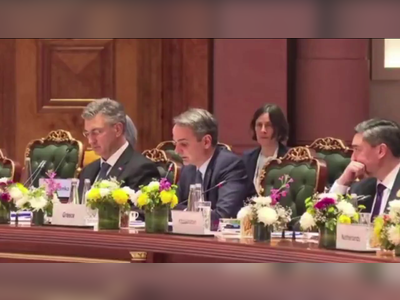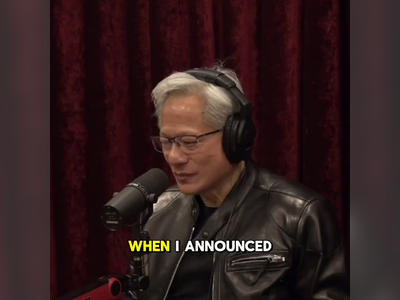The Cost of Crushing Childhood Wonder: A Vicar's Unfortunate Revelation about Santa Claus
A Hampshire primary school’s controversial lesson about Santa Claus raises important questions about the boundaries between education, authority, and childhood imagination.
In a controversial incident that has sparked widespread public debate, Rev. Dr. Paul Chamberlain, a vicar from St. Faith’s Church in Lee-on-the-Solent, recently told a class of 10- and 11-year-olds that Santa Claus does not exist.
The vicar, who was visiting the school to speak about the religious significance of Christmas, made an unexpected and ultimately unwelcome expansion of his lecture by revealing to the children that their parents, not Santa, were responsible for buying their presents and eating the biscuits left out on Christmas Eve.
The fallout from his comments was swift and emotional, with tearful children, angry parents, and a public apology issued by the vicar.
But what does this incident say about the intersection of childhood education, religious authority, and the preservation of wonder during a child’s formative years?
For many children, particularly those in the age range of 10 and 11, the belief in Santa Claus is one of the last vestiges of childhood magic and innocence.
The figure of Santa serves not only as the bearer of presents but also as a symbol of joy, anticipation, and the sense of wonder that is so crucial to a child’s early development.
In the UK, where Christmas traditions are celebrated with fervor, the myth of Santa Claus plays an important role in the emotional and cultural landscape of childhood.
To have this belief shattered by an authority figure—someone whose words carry weight within the context of a school and religious education—can be deeply unsettling, as evidenced by the immediate emotional distress exhibited by the children.
While the vicar’s comments may have been well-intentioned, with an aim to emphasize the biblical aspects of Christmas and steer the children’s focus toward the nativity story, the disruption of such a deeply cherished childhood belief was an error in judgment.
Rev. Chamberlain’s mistake was not merely a factual correction, but a dismissal of a tradition that holds significant emotional value for children and families alike.
For many parents, the revelation that their children were exposed to such an unceremonious dismantling of the Santa myth by an educator was not only upsetting but also disrespectful to the family’s role in nurturing a child’s sense of wonder.
The controversy raises a crucial question about the role of educators and authority figures in guiding children’s perceptions of the world.
Should educators, particularly those in religious or formal settings, be responsible for managing childhood myths, or is it solely the role of parents?
Telling children that Santa Claus is a myth is, of course, an inevitable part of growing up; however, the timing, context, and manner in which this truth is revealed is paramount.
The vicar’s approach, delivered abruptly during a school lesson, seemed to bypass the delicate timing that many parents prefer in addressing such issues.
In some ways, this might be seen as an overstep, as it’s a parental responsibility to decide when and how their children should learn these truths.
Additionally, the age at which children should be introduced to the realities behind certain myths is a sensitive matter.
Cognitive development varies greatly among children, and while some may be ready to let go of the Santa myth at a younger age, others may take longer to process and understand the transition.
By forcing that understanding prematurely, particularly in a classroom setting where the authority of the teacher is implicit, the vicar unintentionally inflicted emotional harm on the children.
The emotional distress reported by the students and their families underscores the significant role that Santa Claus plays in maintaining a sense of security, joy, and belief in the extraordinary.
At a time when childhood is increasingly defined by the pressures of school, media, and growing social awareness, Santa offers a much-needed refuge of pure fantasy.
It is important to recognize that Rev. Chamberlain’s intentions were not malicious.
He was simply trying to discuss the religious meaning of Christmas, but his failure to gauge the emotional impact of his words highlights the complex nature of childhood education.
Teachers and religious leaders must be aware of the psychological stages their students are going through, especially when engaging with topics that directly touch on a child’s imagination or belief system.
In this case, the vicar’s attempt to inject realism into the holiday narrative failed to account for the fact that some childhood beliefs are fundamental to a child’s development and their emotional experience of the world.
The broader lesson here is one of empathy and sensitivity.
It is clear that educators and other authority figures have a profound influence on children, and with that power comes a responsibility to act with care.
As schools and religious institutions continue to play an influential role in shaping the minds and beliefs of young people, there needs to be a heightened awareness of the impact of premature exposure to harsh realities.
In the case of Santa Claus, while it is inevitable that children will eventually grow out of the myth, it is crucial that this transition happens in an environment that respects the emotional bond children have with such symbols.
Ultimately, this incident serves as a reminder of the delicate balance between truth and fantasy that exists within childhood.
While truth is important, so too is the preservation of wonder, especially when that wonder shapes how a child views the world.
Educators, religious leaders, and parents alike must work together to ensure that children have the opportunity to experience the joy and magic of childhood, untainted by unnecessary revelations.
As the apology issued by the vicar and the subsequent responses from parents and the school indicate, there is a clear demand for a more thoughtful and empathetic approach to these sensitive issues.
The vicar, who was visiting the school to speak about the religious significance of Christmas, made an unexpected and ultimately unwelcome expansion of his lecture by revealing to the children that their parents, not Santa, were responsible for buying their presents and eating the biscuits left out on Christmas Eve.
The fallout from his comments was swift and emotional, with tearful children, angry parents, and a public apology issued by the vicar.
But what does this incident say about the intersection of childhood education, religious authority, and the preservation of wonder during a child’s formative years?
For many children, particularly those in the age range of 10 and 11, the belief in Santa Claus is one of the last vestiges of childhood magic and innocence.
The figure of Santa serves not only as the bearer of presents but also as a symbol of joy, anticipation, and the sense of wonder that is so crucial to a child’s early development.
In the UK, where Christmas traditions are celebrated with fervor, the myth of Santa Claus plays an important role in the emotional and cultural landscape of childhood.
To have this belief shattered by an authority figure—someone whose words carry weight within the context of a school and religious education—can be deeply unsettling, as evidenced by the immediate emotional distress exhibited by the children.
While the vicar’s comments may have been well-intentioned, with an aim to emphasize the biblical aspects of Christmas and steer the children’s focus toward the nativity story, the disruption of such a deeply cherished childhood belief was an error in judgment.
Rev. Chamberlain’s mistake was not merely a factual correction, but a dismissal of a tradition that holds significant emotional value for children and families alike.
For many parents, the revelation that their children were exposed to such an unceremonious dismantling of the Santa myth by an educator was not only upsetting but also disrespectful to the family’s role in nurturing a child’s sense of wonder.
The controversy raises a crucial question about the role of educators and authority figures in guiding children’s perceptions of the world.
Should educators, particularly those in religious or formal settings, be responsible for managing childhood myths, or is it solely the role of parents?
Telling children that Santa Claus is a myth is, of course, an inevitable part of growing up; however, the timing, context, and manner in which this truth is revealed is paramount.
The vicar’s approach, delivered abruptly during a school lesson, seemed to bypass the delicate timing that many parents prefer in addressing such issues.
In some ways, this might be seen as an overstep, as it’s a parental responsibility to decide when and how their children should learn these truths.
Additionally, the age at which children should be introduced to the realities behind certain myths is a sensitive matter.
Cognitive development varies greatly among children, and while some may be ready to let go of the Santa myth at a younger age, others may take longer to process and understand the transition.
By forcing that understanding prematurely, particularly in a classroom setting where the authority of the teacher is implicit, the vicar unintentionally inflicted emotional harm on the children.
The emotional distress reported by the students and their families underscores the significant role that Santa Claus plays in maintaining a sense of security, joy, and belief in the extraordinary.
At a time when childhood is increasingly defined by the pressures of school, media, and growing social awareness, Santa offers a much-needed refuge of pure fantasy.
It is important to recognize that Rev. Chamberlain’s intentions were not malicious.
He was simply trying to discuss the religious meaning of Christmas, but his failure to gauge the emotional impact of his words highlights the complex nature of childhood education.
Teachers and religious leaders must be aware of the psychological stages their students are going through, especially when engaging with topics that directly touch on a child’s imagination or belief system.
In this case, the vicar’s attempt to inject realism into the holiday narrative failed to account for the fact that some childhood beliefs are fundamental to a child’s development and their emotional experience of the world.
The broader lesson here is one of empathy and sensitivity.
It is clear that educators and other authority figures have a profound influence on children, and with that power comes a responsibility to act with care.
As schools and religious institutions continue to play an influential role in shaping the minds and beliefs of young people, there needs to be a heightened awareness of the impact of premature exposure to harsh realities.
In the case of Santa Claus, while it is inevitable that children will eventually grow out of the myth, it is crucial that this transition happens in an environment that respects the emotional bond children have with such symbols.
Ultimately, this incident serves as a reminder of the delicate balance between truth and fantasy that exists within childhood.
While truth is important, so too is the preservation of wonder, especially when that wonder shapes how a child views the world.
Educators, religious leaders, and parents alike must work together to ensure that children have the opportunity to experience the joy and magic of childhood, untainted by unnecessary revelations.
As the apology issued by the vicar and the subsequent responses from parents and the school indicate, there is a clear demand for a more thoughtful and empathetic approach to these sensitive issues.
AI Disclaimer: An advanced artificial intelligence (AI) system generated the content of this page on its own. This innovative technology conducts extensive research from a variety of reliable sources, performs rigorous fact-checking and verification, cleans up and balances biased or manipulated content, and presents a minimal factual summary that is just enough yet essential for you to function as an informed and educated citizen. Please keep in mind, however, that this system is an evolving technology, and as a result, the article may contain accidental inaccuracies or errors. We urge you to help us improve our site by reporting any inaccuracies you find using the "Contact Us" link at the bottom of this page. Your helpful feedback helps us improve our system and deliver more precise content. When you find an article of interest here, please look for the full and extensive coverage of this topic in traditional news sources, as they are written by professional journalists that we try to support, not replace. We appreciate your understanding and assistance.











